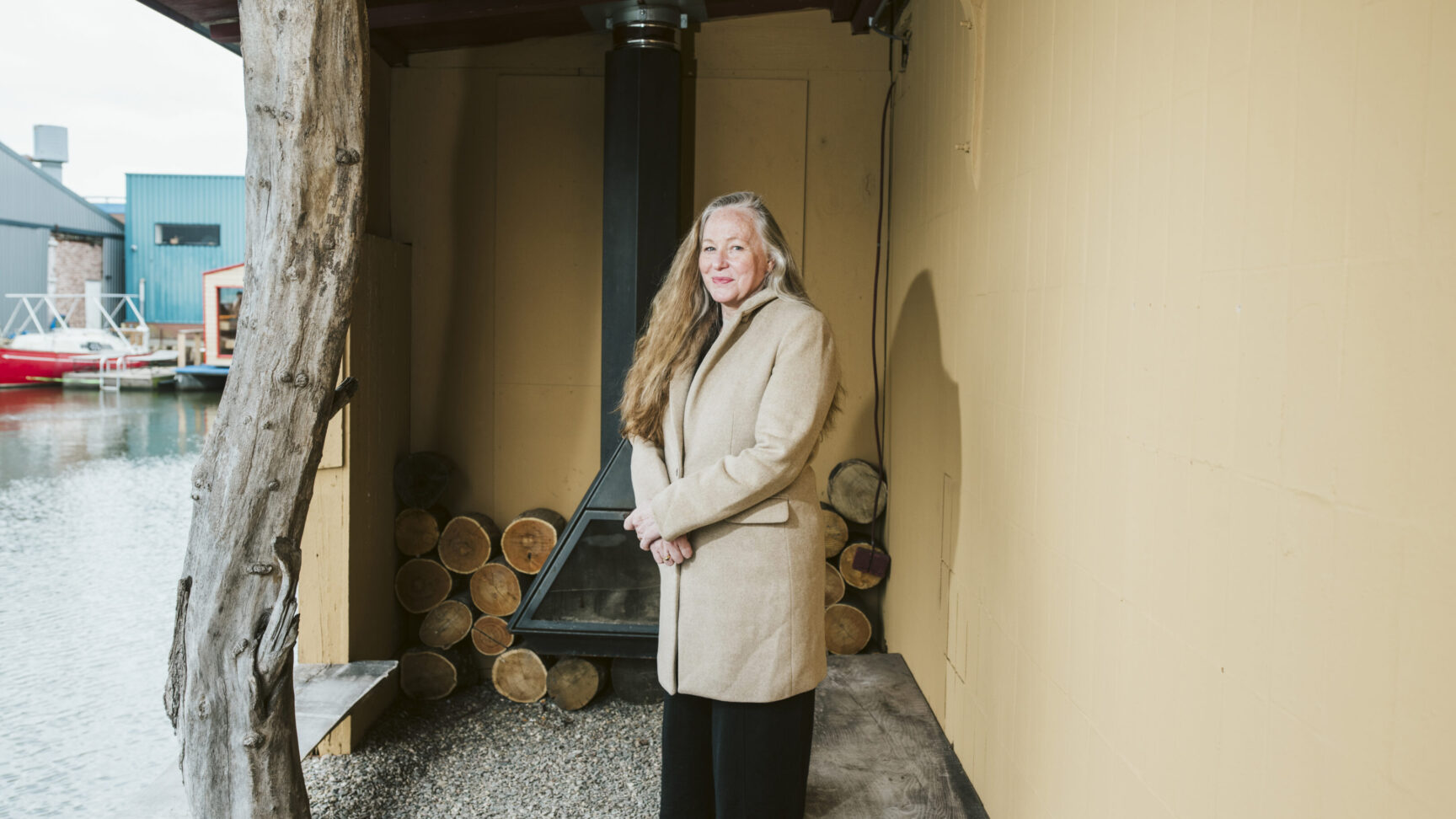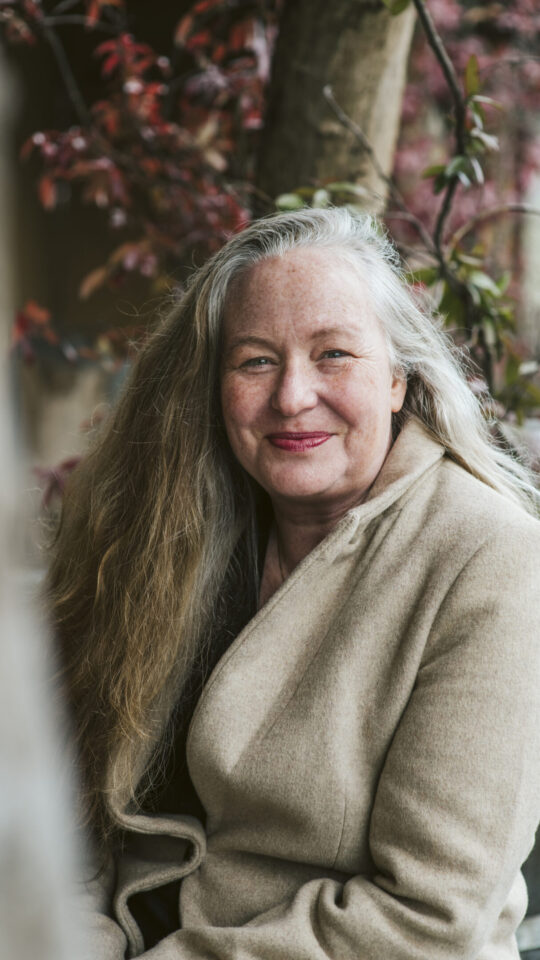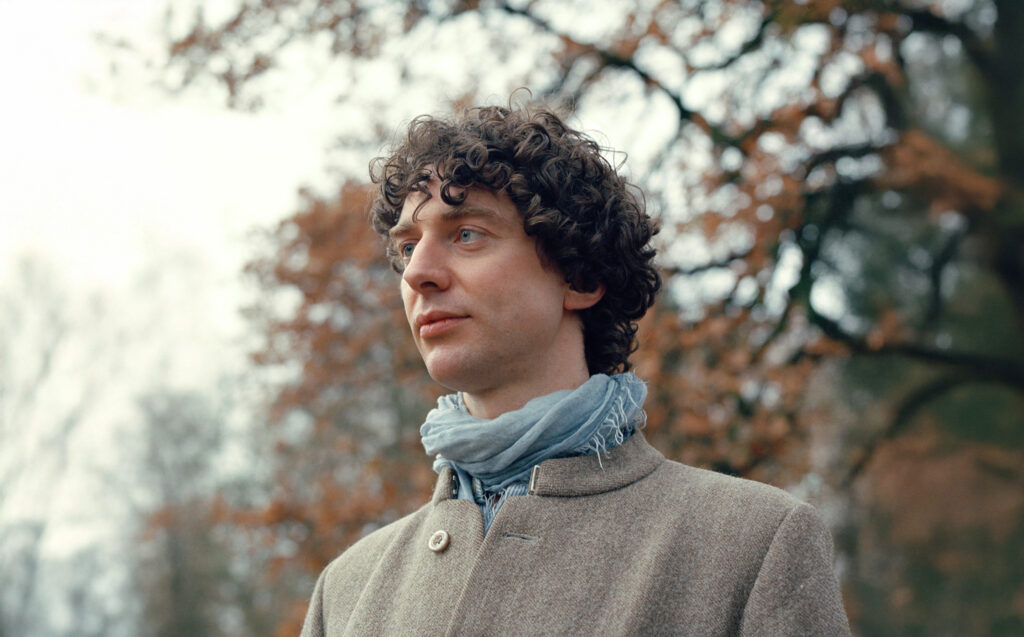Nora Bateson: “How our ways of knowing shape our collective future”
“Applying static data to a living world is dangerous – especially when it comes to preserving our planet”, says Nora Bateson, award-winning filmmaker, writer and president of the International Bateson Institute. Following in the footsteps of her father Gregory Bateson, she extends the family legacy into new territory by asking how our ways of knowing shape our collective future. Through her work on warm data, Bateson warns of the risks of reductionist thinking in education, healthcare and food systems, insisting instead that “who we are, our health, the wellbeing of generations to come – these are all interconnected ecological systems.”
To begin, could you introduce yourself – and share how your journey led you to warm data?
“This is a good place to start, because the way we introduce ourselves already reflects how we see the world around us. Too often, introductions reduce us to roles or accomplishments, narrowing the possibilities of who we can be to one another. I am always hesitant to introduce myself in traditional terms, because it sets up a reductionism that is then difficult to escape. The question is not: what have I achieved? But rather: who can I be when I am with you? Who can you be when you are with me? This is an ecological question, because organisms are always responding to context. To see one another’s complexity – beyond roles and categories – is essential for any regenerative work. And this, in essence, is what warm data is about.
Warm data looks at information in context, rather than in isolation.
It recognises that meaning is shaped by relationships between people, systems, cultures and environments – and my interest in this goes back to childhood. My father Gregory Bateson brought cybernetics and systems theory into being and applied it to psychology, ecology, anthropology, information science and more. And my grandfather, William Bateson, coined the term genetics. He was fascinated by the way organisms transform in response to one another. If you look for change in isolation, you miss what is happening in context. Reductionist science has often made this mistake, treating ecology as something confined to forests or ecosystems, when in fact our whole way of knowing – our epistemology – is an ecology. Who we are, our health, the health of oceans and forests, the wellbeing of generations to come: these are all interconnected ecological systems.
For me, this was everyday life growing up. From breakfast, to walking the dog, to simply being – I was immersed in these overlapping ecologies. And yet, the moment I went to school, I had to navigate an entirely different reality.”
Uitgelichte quote
Applying static data to a living world is dangerous
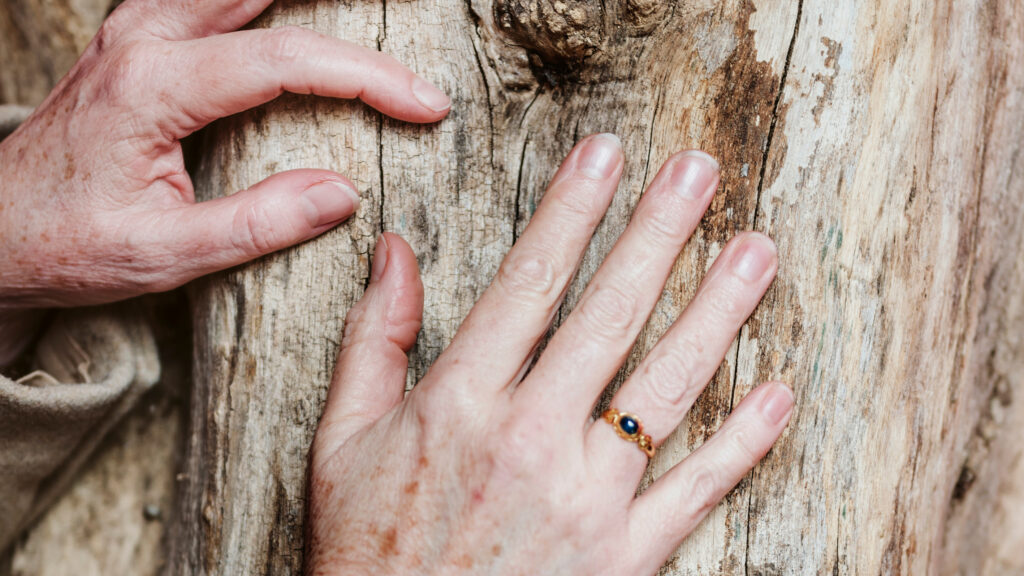

Because our education system still holds a reductionist view – teaching us about the world in terms of ‘cold data’.
“I don’t usually use the term ‘cold data’, but many people around me do, because it highlights the contrast. What it really means is an extracted piece of information taken from a moving realm of overlapping contexts.
You might say: look at this child’s math grades – they’re not doing well. If you only focus on that small circle of information, you’ll find endless justifications for a response aimed solely at the math. But if you widen your perception – and this takes practice – you begin to see the child’s feelings about school, the culture that produces ‘math grades’, the wider relational patterns. If you only address the math, you may succeed in getting the child to submit their dignity and soul to fit into being ‘better at math’. That cost can carry through their relationships, their health, their identity, even their sexuality – for the rest of their lives and perhaps for generations.
Cold data is seductive because it promises linear, measurable results. But this is an addiction we should be wary of, because life itself is moving. Applying static data to a living world is dangerous – especially when it comes to preserving our planet.”
Uitgelichte quote
Planting a lot of the same trees in the same place does not create a forest
Can you give an example?
“Take biodiversity loss, which is so often treated reductionistically. We measure insect decline, fish decline, fungi decline – and then the ‘solution’ becomes: increase those numbers. But ecology doesn’t work like that.
Think of laws that say every time you cut down a tree, you must plant another. It sounds good, but planting a lot of the same trees in the same place does not create a forest. The biodiversity is left out. Each organism isn’t a cog in a machine doing one task – each is involved in hundreds of relationships. Raising a single number won’t address the deeper crisis.
And beneath biodiversity loss lies a more profound question of identity. From breakfast to transport, clothing to soap – most of our daily rituals, which are bound up with who we are, are destructive of biodiversity. In this way, biodiversity loss becomes an expression of many relational problems.”
Uitgelichte quote
When relationships break, the system collapses
How can we better address these crises?
“It starts with not losing sight of the relationships, and investing in them to keep them alive. Blaming each other only breaks those connections. And in ecology, when relationships break, the system collapses.
The habit is that whenever we feel outraged – by the news, at work, in politics – our perception narrows. The complexity that produced the situation is blurred away, or hijacked. So if I’m deeply upset, my note to self is: check in, because you can only feel that level of rage if you’ve stripped out the complexity. I’m not saying we shouldn’t get upset. Rage, anger, frustration: these are part of learning, finding the edges of our understanding. But they’re also often the result of a reductionist view.
Take immigration. People say in anger: send them back, they’re the problem. But the immigrants are not the problem. What’s missing from the discourse are the last several hundred years in which Western democracies set laws of equality and ecology at home, while importing everything through exploitation: phones made with child labour, clothes with toxic dyes, crops grown in abusive conditions. We sit in democratic countries claiming virtue, while feeding on global exploitation. That’s a huge blind spot.”
Uitgelichte quote
If you want to change the food system, you can’t only change the food system
How could warm data help transform today’s destructive systems – for instance when it comes down to food?
“If you want to change the food system, you can’t only change the food system. You have to address culture, intergenerational relationships, transportation, work, even what it means to be alive.
At present, science reduces food to nutrients and calories – protein, vitamins, and so on. That logic leads to a kind of totalitarianism: telling people what to eat. But culture will resist. Instead, support the people who want to grow food locally, raise animals humanely, experiment with new approaches. Because food isn’t about food: it’s about relationships. Intergenerational ties. Sitting at the table together, or not. So don’t ask: what’s the right formula for food? Ask: how do our relationships shift through food? There is no single formula. Everything depends on the local context.”
Uitgelichte quote
We ended up with ‘sick care’, not health care

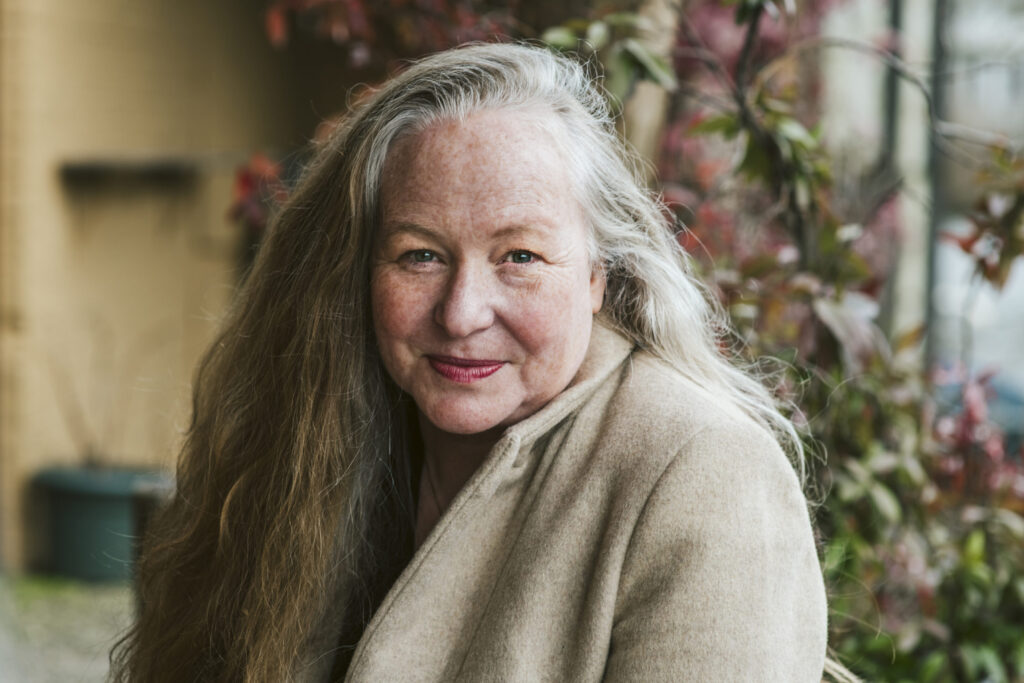
What about healthcare? At the moment we treat everyone with the same pharmaceuticals…
“When my mother was a child in the 1930s, doctors came to your home. They knew the warm data of the family and community – was there food, love, heat, cleanliness? Two children might have the same virus but need very different care, because of their relational context.
Now, in modern healthcare, doctors see only clinical stats and perhaps a blood sample. They don’t see dignity, relationships, joy. Whilst health is relational. It’s not just the symptom – it’s who you are covering for, who depends on you, what ecology of support exists. We no longer ask about that. And so, we end up with ‘sick care’, not health care.”
Uitgelichte quote
Ecology is not ecology if it’s static
How can we make sure the ‘warm data perspective’ becomes the norm?
“One way we can all contribute is to practice noticing multi-contextual relationships every day. Take a glass of water. Notice its design, the cultural ideas of hydration, the tap system, the fact that you no longer fetch water with neighbours, the human body that is 70 percent water, the politics of bottled water… Each ordinary thing is an emergent expression of many contexts. Practising that perception shifts you.
It’s tricky, because ecology is not ecology if it’s static – it is constantly moving, learning, changing. As humans, we keep asking questions like: what’s my role? But you don’t have a single role. You have ten thousand roles, and they are all constantly changing. Regeneration can help us find the values to live by in that shifting reality. Because it’s about integrity and generosity. Not integrity as consistency, but as responding from interdependency when no rulebook exists. And generosity not as sharing apples, but as the lungs sharing oxygen with the body – because hoarding would mean death.”
Uitgelichte quote
To see one another’s complexity – beyond roles and categories – is essential for any regenerative work

Final question: what keeps you going when the state of the world feels overwhelming?
“Those moments do come. Sometimes I crawl under the covers and binge-watch a silly series. Sometimes I walk in the woods, cook for my family, listen to music, write a poem, cry, or eat chocolate.
Underneath all those coping mechanisms is the understanding that life is beautiful. I’m alive – and that’s enough.”
Original publication date: 17th of September 2025. Latest update: 27th of October 2025.
Who is Nora Bateson?
Nora Bateson (1969) is an award-winning filmmaker, writer and educator, as well as the founder of the International Bateson Institute, based in Sweden. Her work asks the question ‘How can we improve our perception of the complexity we live within, so we may improve our interaction with the world?’.
An international lecturer, researcher and writer, Nora wrote, directed and produced the award-winning documentary, An Ecology of Mind, a portrait of her father, Gregory Bateson. Her work brings the fields of biology, cognition, art, anthropology, psychology, and information technology together into a study of the patterns in ecology of living systems. Her book, Small Arcs of Larger Circles, released by Triarchy Press (2016) is a revolutionary personal approach to the study of systems and complexity. Amongst others, she has received the Sustainable Thompkins Ecology Award and the Media Ecology Award.
